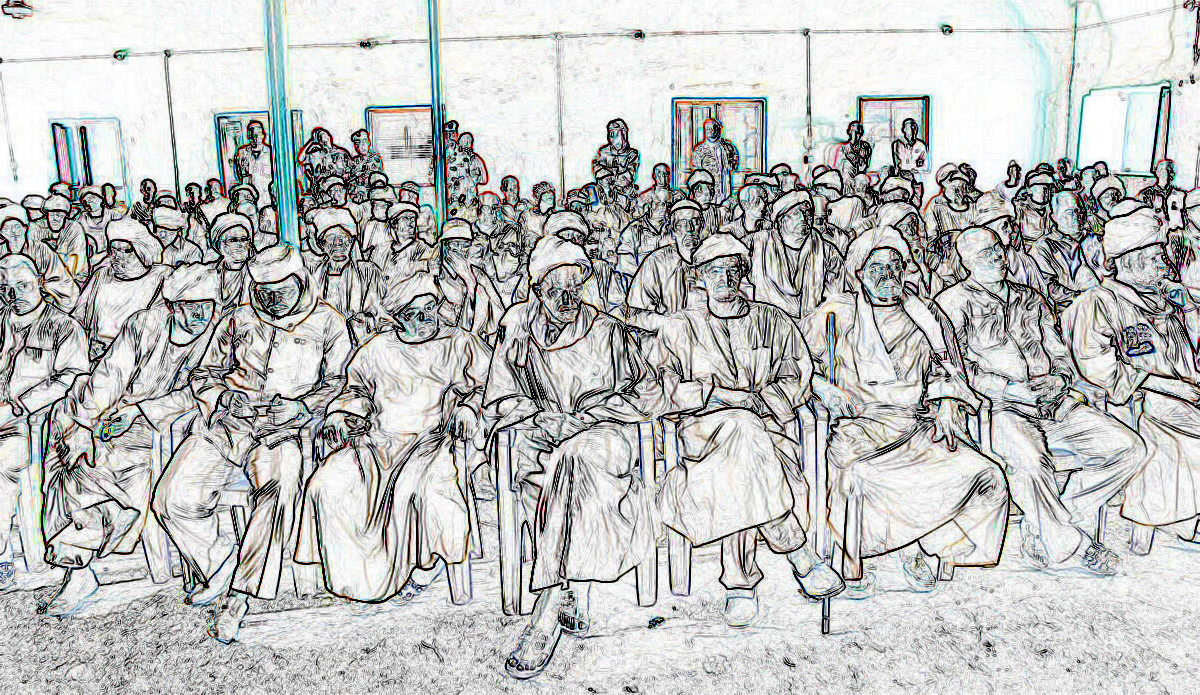
How Does the Traditional Role of Tribal Leaders End?
By: Al-Asmai Bashari
Attempts to align along tribal or regional lines, and involving citizens in a war whose goals and motives they dont understand, wont lead to democracy or dignity. The efforts to control Darfur through tribal and ethnic alliances, and the persistence in maintaining armed forces, especially, will not bring democracy and wont achieve dignity. Everything currently happening in Sudan is more about serving personal interests than national construction. Its about self-proclaimed victories under national and humanitarian slogans, amidst the decline of civil voices seeking peaceful democratic transformation, devolving into divisive camps and rigid stances.
So, was the role of the tribal leader, since independence, a self-made choice within their social environment, or was it a forced stone, or was it a result of their political penetration to a higher level of awareness prevalent in their small surroundings? Or are there other reasons that forced them to stay isolated and secluded from their fate issues and inevitable questions?
The civilian leadership in Sudan bears the burden of many cases of political and social manipulation and the widening gap that has occurred within Sudanese societies. Their overt bias and disconnection from the comprehensive national interest, in favor of engaging in complicated and failed national political activities, only serve their personal interests, under the guise of national and humanitarian slogans, while the civil voice seeking peaceful democratic transformation is weakening and dividing into extremist positions.
All of this is happening away from where they came from, without any understanding of their treasure, their traditions, and heritage. They have treated it as a social and cultural sanctuary exclusive to them and no one else. A sanctuary only for the glimmer of power, the greed of trade, economic power, and tribal vanity.
All of this is just for the sake of representing a geographical individual in the executive and legislative authority, as if they are carrying an eternal history on their shoulders. A history whose chapters and facts never change. They deliberately or negligently ignored their pioneering role in contributing to establishing a cultural and civilizational consciousness that builds on the old for renewal and development. They forgot fundamental questions about what they did for a genuine national project after independence? What are the problems and concerns of their small societies within the framework of a national state, and a country as diverse as Sudan, with its various cultures and ethnicities?
They forgot all of this and continued to eagerly pursue positions of authority, and they quarreled over the symbolic and moral representation without paying attention to the depth of their rich cultures with their creative, lively, and tolerant heritage. Without sensing the cries of their cultures dying and its agony due to systematic neglect, replaced by a culture of violence, ignorance, and rejection.
Here, Darfur falls victim to wars and the curse of racism before the eyes of its leaders and politicians. In the East of Sudan, it suffers from neglect and disease under the watchful eyes of its mayors and dignitaries. The whole North suffers from the stagnation of blind backwardness and entrenched outdated concepts, amidst the silence of its people and their escape from confronting the significant questions.
The time of withdrawal and ignoring the fires of momentary history has come to an end. Now is the time for political leaders to immerse themselves in their cultural reservoirs. After this grand revolution aimed at persistently interpreting the reality it created, Sudanese civil and political leaders need to change history by delving into the treasures of their cultures and heritage. They should play a pivotal role in the countrys future by engaging in true enlightening cultural work within their social communities. They should infuse the spirit of change into building the human being culturally and civilly, with determination and a plan, proposing great intellectual projects that contribute to the Sudanese nations advancement.

